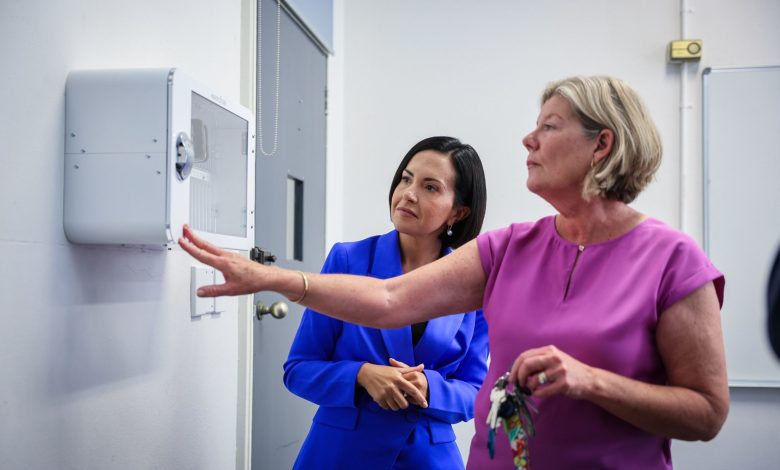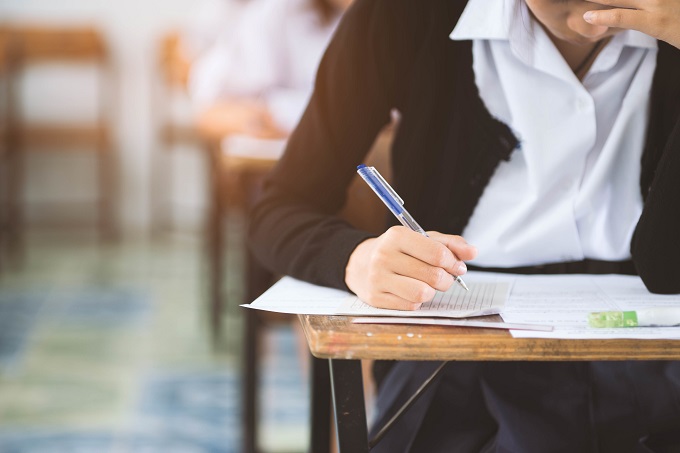Off and away: Mobile phone bans
In the past year, mobile phones have been disappearing from classrooms and school yards, with bans to restrict their use being rolled out.

The bans, introduced by state and territory governments, stipulate that student mobile phones must be off and away during the school day. In some jurisdictions, the ban extends to break times.
New South Wales is the latest state to introduce a ban. Students in public high schools across NSW must now have their mobile phones turned off and out of sight, as the NSW Government delivers on its commitment to ban students’ use of phones at school from the start of Term 4.
Read the Term 4 edition of School News HERE
Consultation with teachers, students and parents, took place before the ban was proposed, and will apply during class, recess and at lunch. Students will still be permitted to carry a phone while travelling to and from school. This will complement the ban in place in NSW public primary schools. The government said the ban is one of a number of measures it is putting in place to improve the classroom environment and student outcomes.
Principals and teachers can authorise the use of mobile phones for educational purposes, or as part of a reasonable adjustment for student learning and wellbeing – such as monitoring blood sugar levels for students with diabetes. Schools will determine how they enforce the ban and respond to any breaches.
Deputy Premier and Minister for Education and Early Learning Prue Car said: “This ban creates a level playing field across all NSW public schools, and means students can focus on what’s most important – learning in the classroom.
“It will help to provide more productive classrooms for students and teachers, reducing opportunities for distraction and cyberbullying.”
Managing and restricting mobile phone use at school is on the national agenda, with all education ministers agreeing to a national commitment to ban, restrict or manage the use of mobile phones in government schools.
It is hoped that banning the use of mobile phones during school hours will reduce the negative impact from inappropriate use of mobile devices, and reduce unnecessary distractions in classrooms to help both teachers and students focus on learning.
Not allowing phone use during break times encourages students to use breaks as quality time away from screens. Reducing incidents of cyberbullying has also been cited as a reason for mobile phone bans. Face-to-face social interactions between students may also improve, as students are not on their devices during break times.
Victoria rolled out mobile phone bans several years ago. From Term 1 2020, phones brought to Victorian public schools had to be turned off and stored securely during the school day. A ban also came into effect from Term 1 2020 in Western Australian public schools, and Tasmania introduced a similar ban from Term 2 2020.
A mobile phone ban has been in place across South Australian public high schools since Term 3 this year. The ‘off and away’ policy was introduced to reduce distraction in the classroom and stop some of the bullying that occurs through social media, with both outcomes leading to improved learning.
From Term 1 2024, mobile phones will be banned in Queensland public schools. Principals and school leaders across Queensland have already implemented bans and been supported to do so: more than 95 percent of schools have a clear policy banning the use of phones during class times, with the remaining schools restricting usage informally.
While these bans are only compulsory for state schools, many Catholic and independent schools have also elected to enforce a phone ban.

Phil Philippou, National Business Manager at Thinc Products Australia, said the benefits for limiting student access to phones are wide ranging, and said there is research indicating improved student outcomes, decline in cyber-bulling, and improved student wellbeing when mobile phone use at schools is restricted. He shared some tips for ensuring the mobile phone ban can be enforced in your school.
“The first step is to have a clear written policy in place that outlines the rules and consequences for using mobile phones during school hours. Educate students on the importance of unplugging, and hold regular school-wide assemblies or classroom discussions about the negative effects of excessive screen time and the benefits of unplugging during school hours.
Mr Philippou said keeping parents and guardians informed about the school’s mobile phone policy was important, as is storage solutions for phones. “Implement a system where students can store their phones in a designated location, such as a locked box or pouch, during school hours. This helps to prevent students from accessing their phones during class.”







